San Antonio — The seventh Emerging Water Technology Symposium returned as an in-person event for the first time in four years, bringing together industry, manufacturing, water utility and government leaders from around the world. A focus of this year’s event was on resources communities require to build safe and resilient plumbing systems as well as meet the growing list of challenges to America’s drinking water.
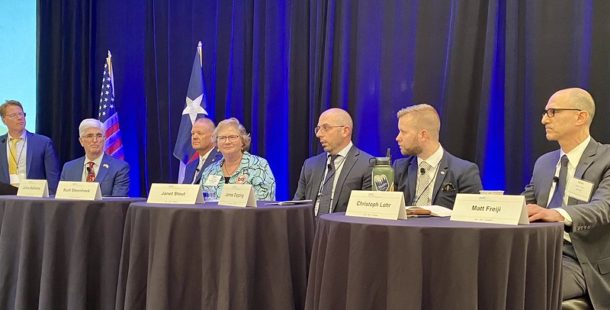
The esteemed panel on Effective Risk Management of Building Water Systems for Pathogen Control included (from l to r) Julius Ballanco, president, JB Engineering; Kurt Steenhoek, International Representative, UA; Janet Stout, Executive VP and Founder, Special Pathogen Laboratory; James Dipping, Director of Plumbing Engineering, Environmental Systems Design, Inc.; Christoph Lohr, VP of Strategic Initiatives, IAPMO; and Matt Freije, CEO, HC Info.
The May 10-11 event at the Westin Riverwalk, San Antonio was co-convened by the Alliance for Water Efficiency (AWE), the American Society of Plumbing Engineers (ASPE), the International Association of Plumbing and Mechanical Officials (IAPMO) and Plumbing Manufacturers International (PMI).
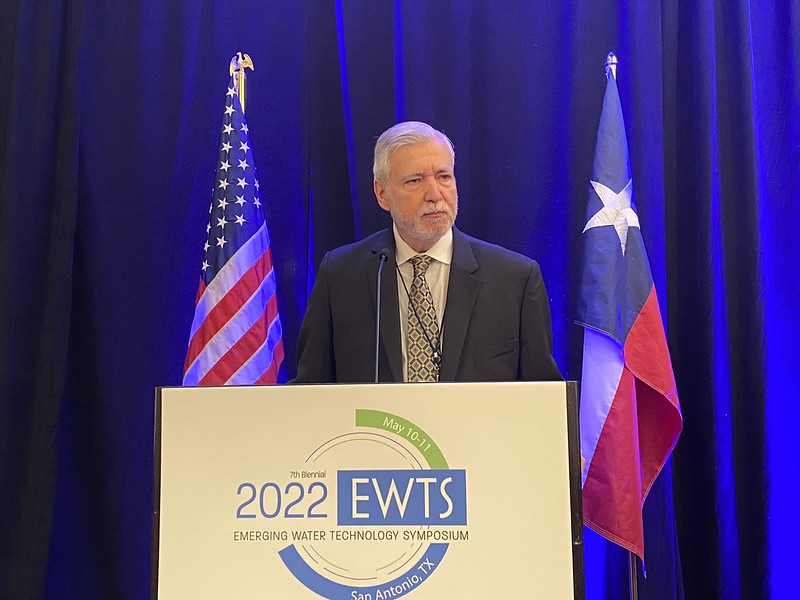
Pete DeMarco
“As an industry we have a number of high priority research needs that relate to water quality as well as water and energy efficiency,” IAPMO Executive Vice President of Advocacy and Research Pete DeMarco explained in discussing the importance of the symposium. “This year’s event brought together some of the brightest minds industry has to offer all focused on how we make our plumbing and mechanical systems safer and more resilient to meet the challenges ahead.”
In his opening remarks, DeMarco pointed to a number of accomplishments for which the EWTS has served as a springboard, including the development of the Green Plumbing and Mechanical Code Supplement (now the Water Efficiency and Sanitation Standard WE•Stand); ANSI/ASHRAE Standard 188-2018, Legionellosis: Risk Management for Building Water Systems; ASSE 12000 series on infection control and water quality, which is in IAPMO’s Uniform Plumbing Code (UPC®); and IAPMO’s Water Demand Calculator, whose second version was released in 2020.
“This symposium provides a much-needed platform for stakeholders across the industry to gather, discuss the latest research, and then discuss how we can take action,” he said. “It is a highly valuable event, and I look forward to seeing it continue to grow in the future.”
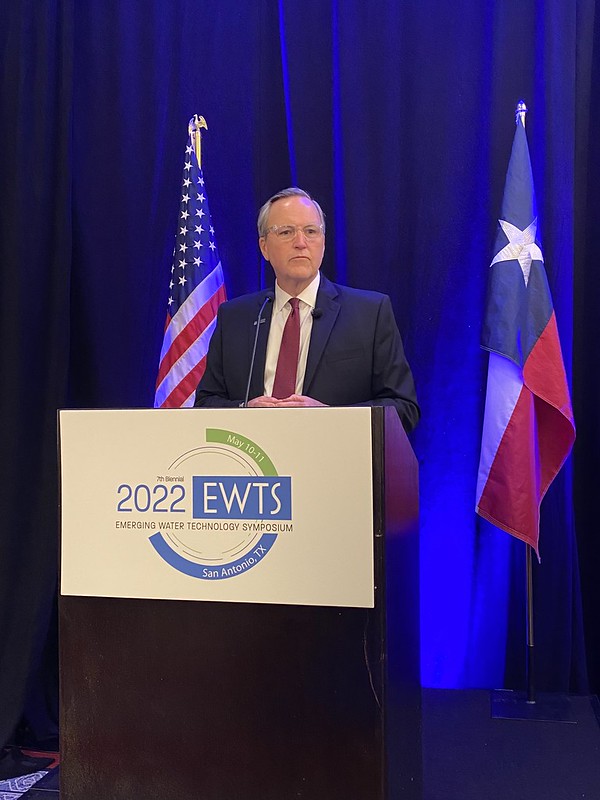
Kerry Stackpole
PMI CEO Kerry Stackpole spoke at the event and said the relationships between the organizations represented at EWTS had likely never been more important than they are now. He said that while the best and brightest among us devised medical solutions to the COVID-19 pandemic, the plumbing industry also played an important role.
“What’s also important is how our industry responded,” he said. “Our industry’s experience and our focus became touchless faucets, antimicrobial surfaces, water purification systems, all kinds of energy-efficient devices focused on safe and responsible plumbing. We all had a contribution to make and I think our industry stepped up.”
Stackpole said wildfires, flooding and drought that different regions of the United States are experiencing put those in the industry in a position to shape the future.
“Your active engagement here, in your communities back home, and in the marketplace of ideas, where we will have opportunities to share ideas with one another, will make all the difference,” he said. “You actually are able to turn the dial on this, and I think that’s really exciting.”
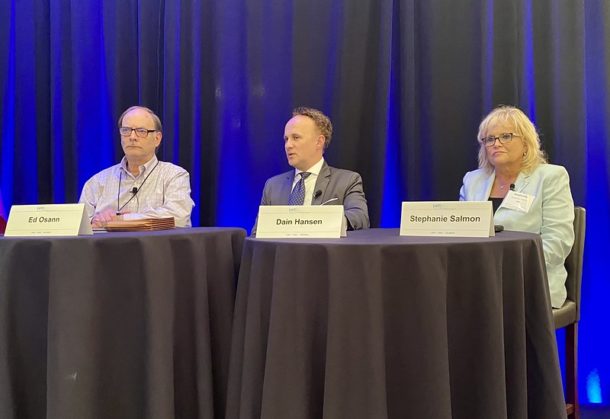
A day 2 panel saw (from l to r) Ed Osann, Senior Water Policy Analyst, NRDC; Dain Hansen, Executive Vice President, Government Relations, IAPMO; and Stephanie Salmon, Washington Representative, PMI, talk about the implications of the Infrastructure Investment and Jobs Act on Drinking Water and Wastewater.
This year’s keynote speakers were Robert Puente, president and CEO of the San Antonio Water System (SAWS), and Don Johnston, senior operations director, Indonesia, for Water.org.
Puente’s presentation looked at three ways in which SAWS, which serves 2 million customers over four counties, uses innovation to deliver water to its customers: advanced metering deployment, “smart” manhole covers, and conservation.
“It’s all about innovation,” he said. “And I think if you talk to our employees, although they will tell you that it’s their idea, we know that they got their idea from coming to events like this. Every good idea, you should expect it to be stolen, to be used by someone else, and you should be flattered by that. I think anything that you look at here started somewhere else, and we went to conferences in other cities and were able to bring back the ideas to SAWS to really get the innovation aspect in this.”
In delivering his keynote address remotely from Jakarta, Indonesia, Johnston spoke about the global water and sanitation crisis’s impact on low-income households — one in nine people lack access to safe water, one in three do not have access to a toilet — and some potential solutions. Working with financial institutions and water utilities, as well as sister company WaterEquity, Water.org helps bring affordable financing to people in need of water.
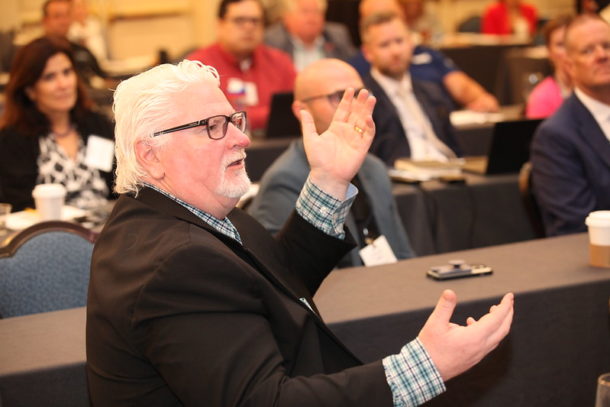
The Hub’s John Mesenbrink asks the hard-hitting questions during the symposium.
“In about 19 years of work on the ground, we’ve seen water and sanitation access reach more than 45 million people through more 10 million microloans disbursed to households with capital of $3.7 billion mobilized,” he said.
In his presentation, Phillip White, manager of plumbing and mechanical inspections for the city of Vancouver, British Columbia, shared how his city addressed the problem of insufficient sewer capacity when it came to capturing large amounts of rainfall through water reuse technologies. One development, the Oakridge Centre, utilized the IAPMO Water Demand Calculator and is expected to have the largest non-potable water system in North America.
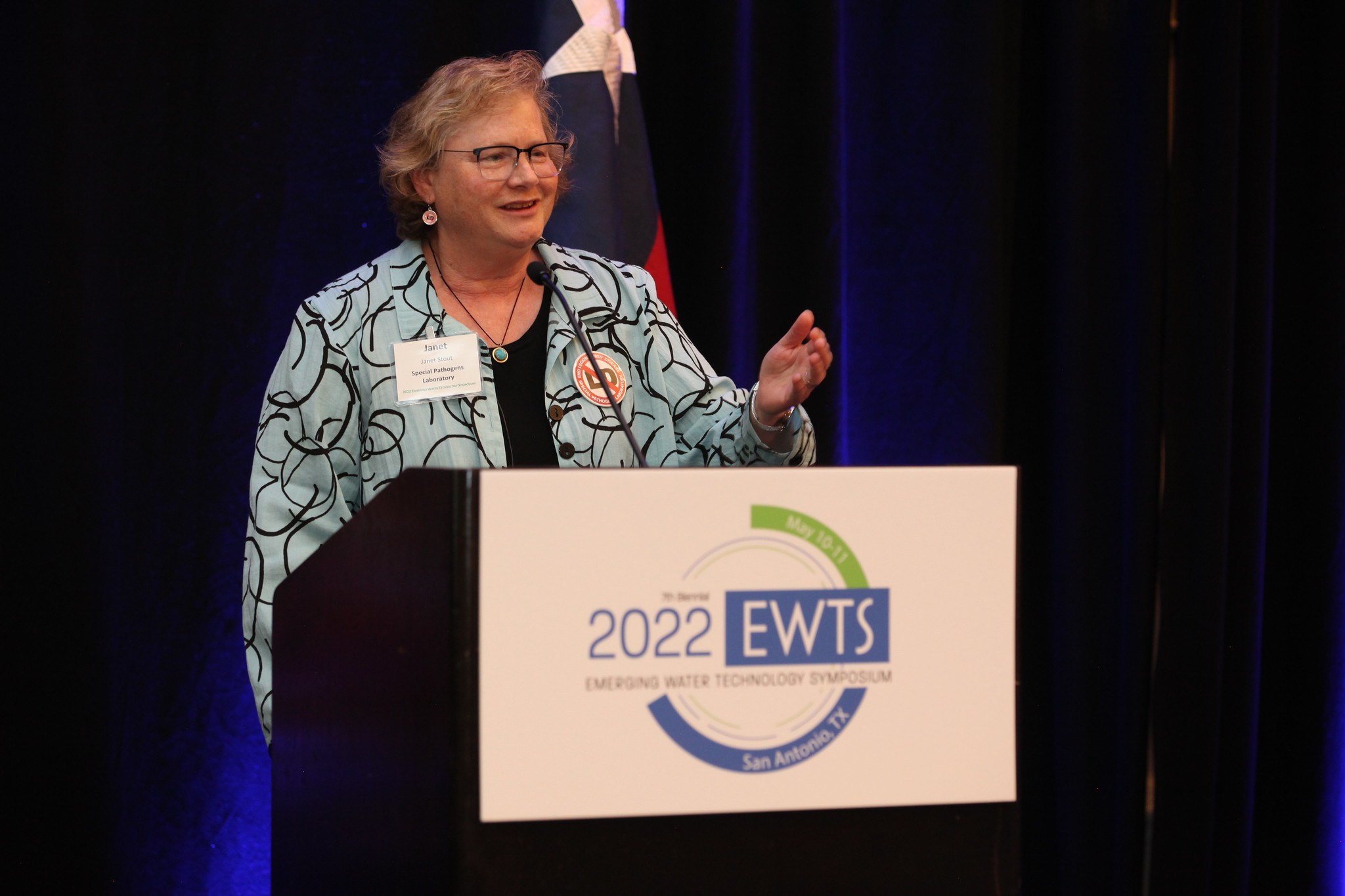
Janet Stout
Another speaker, Special Pathogens Laboratory Executive Vice President/Founder Dr. Janet Stout, looked at approaches and products for mitigating the risk of Legionellosis in point-of-use and point-of-entry building water systems. Improved water management requires knowledgeable Legionella prevention and water service providers, which can come from certification to ASSE/IAPMO/ANSI 12080 for Legionella Water Safety and Management Personnel.
IAPMO will provide sessions from the EWTS on-demand in the near future. To be notified when they are available, register at www.ewts.org/2022-ewts.



